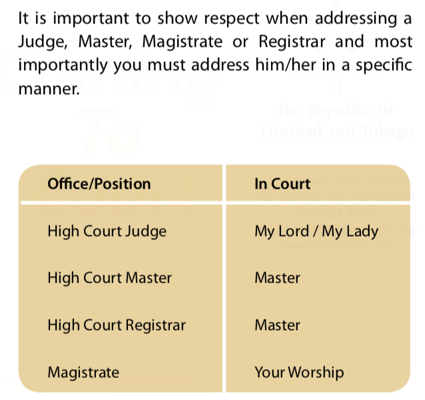April 22, 2025
By Magnus Attorneys at Law
As Attorneys, we are aware that going to court—whether virtually or in person—can be intimidating, especially if it’s your first time. Understanding the process can help reduce anxiety and ensure that you’re prepared to present yourself in the best possible light. This guide breaks down what you can expect, whether you’re logging in from home or stepping into the courthouse.
VIRTUAL COURT: HOW IT WORKS
Over the past few years, many courts have adopted virtual hearings for certain types of cases, such as pre-trial conferences, traffic matters, and some civil or family law proceedings. Here’s what to know:
1. Preparation is Key
Technology check: Make sure you have a reliable internet connection, a working microphone, and a camera. Familiarize yourself with the video conferencing platform (e.g., Zoom, WebEx, Teams) if you are not Attending Court at the office of an Attorney-at-Law.
Quiet environment: Choose a quiet, private space where you won’t be interrupted.
Dress appropriately: Wear courtroom-appropriate attire, just as you would for an in-person hearing. (See below for further details)
Arrive early (virtually): Log in 10-15 minutes before your scheduled time in case of technical issues.
Keep an identification card with you: Some Judges/Judicial Officers may require you to identify yourself by some form of identification for Court. This happens in particular when a person is unrepresented.
2. Courtroom Etiquette Still Applies
Even though you’re not physically in the courtroom, you must behave as if you are:
Address the judge as “Sir” or “Madam” if you do not have an Attorney-at-Law. Judicial Officers are referred to in different terms in different Courts. See below. You can consult with your Attorney-at-Law, if you have one, on how to address the Court.

– Speak clearly and do not interrupt others whilst they are speaking.
-Keep your microphone muted unless you are speaking.
-Avoid multitasking during your appearance.
-It is also helpful to keep a notepad to take notes of any order which the Judge/Judicial Officer may make.
IN-PERSON COURT: WHAT TO EXPECT
If your matter requires an in-person appearance—such as criminal trials or hearings, court of appeal hearings, or contested family matters—here’s how to prepare:
1. Arrive Early and Bring Identification
-Give yourself extra time for security screening and to find your courtroom.
-Bring any documents you were asked to bring and valid photo ID.
-Your lawyer (if you have one) will usually meet you beforehand to go over any last-minute updates.
2. Dress and Act Professionally
Court proceedings are formal occasions and as such, when you attend Court, you should be properly attired.
First ensure that you do not wear loud colours such as red or fluorescent colours or large jewellery since you may annoy the Judge.
Inappropriate dressing may prohibit you from entering the Court such as:
-Hats, sunglasses, revealing or inappropriate clothing, vests, sleeveless tops, shorts and slippers.
-Opened toed shoes or sandal style shoes are also discouraged.
It is best to wear simple jewellery, sombre colours and to have your hair neatly styled.
-Wear clean, conservative clothing. Think business casual at minimum.
-Turn off or silence your phone before entering the courtroom.
-Stand when speaking to the judge and remain respectful at all times.
3. When you enter the Court, please ensure that you do not have the following items:
-Weapons – These includes firearms of any type, knives, any other instrument that is specially adapted as a weapon or explosive devices and any incendiary device or firework, including smoke and stink bombs.
-Cigarette lighters and matches
-Nail files, tools, handcuffs, any straight razor or razor blade
-Any drug of abuse or illegal substance or any drug paraphernalia
-It is best to leave your cell phone in the car since it is taken in some Courts and kept at the security area until you exit the building.
-Anything deemed inappropriate to the Court environment.
4. Expect Some Waiting
It’s common for cases to be heard in a certain order, so be prepared to wait. Bring something to read if needed, and stay alert in case your name is called.
GENERAL RULES OF ETIQUETTE FOR BOTH VIRTUAL AND IN PERSON COURT:
1.) Be on time first of all since a Judge, Master or Magistrate can make orders in your absence.
2.)Eating and items of food are not allowed.
3.)Do not chew gum or hold bottles whilst in Court.
4.)Do not use your cell-phone in Court or you can be fined or held in contempt of Court.
5.)Avoid walking in and out of Court as this is seen as distracting to the Court.
6.)Do not make any voice or video recordings in Court.
7.)All pagers, cell phones, electronic games and any items that can disrupt the Court must be TURNED OFF.
8.)Photography, videotaping, broadcasting and televising equipment or audio recordings of Court proceedings are PROHIBITED. If you have any of these items with you on entering a Court facility, you may be refused admittance until you are able to remove these items from your possession. This applies to Virtual Court as well.
10.)When the Judge or Magistrate enters the courtroom, all persons must stand. The Judge or Magistrate will bow to Counsel (the Attorneys-at-Law) and at the same time Counsel will bow. This is a mark of mutual professional respect. (This applies to In Person Hearings Only)
10.) Counsel will stand when addressing a Judge, Master or Magistrate and when addressed by a Judge, Master or Magistrate. Counsel will sit when the Judge, Master or Magistrate is addressed by another 11.) Counsel and when that other Counsel is addressed by the Judge, Master or Magistrate. (This applies to In Person Hearings Only)
11.) When someone is addressing the Court, nodding, shaking your head, talking to others, reading, or otherwise is seen as being discourteous. Court decorum is a high priority.
12.) Clients and witnesses should never show any outward response to things that are said or done in the courtroom. If the opposing party is being untruthful or misrepresenting the case, you will get your opportunity to present your case later.
13.) When the case is adjourned and the Judge, Master or Magistrate rises to leave the Court, all must stand, Counsel and Judge, Master or Magistrate will bow. (This applies to In Person Hearings Only)
14.) All persons in the courtroom will remain standing and silent until the Judge, Master or Magistrate leaves. (This applies to In Person Hearings Only)
Final Tips From Our Team
– Ask questions: If you’re unsure about the process, your rights, or what’s expected of you, don’t hesitate to ask your lawyer or the Court if you do not have an Attorney-at-Law.
– Be honest and respectful: Judges value sincerity and civility.
– Stay informed: Court procedures and virtual hearing platforms can vary by Court jurisdiction. Always read your court notices carefully.
Source:
The Judiciary of the Republic of Trinidad and Tobago [online] <http://www.ttlawcourts.org/PDF_docu/Brochures/Coming-to-court.pdf> (Accessed: April 22, 2025)
The Judiciary of the Republic of Trinidad and Tobago Vidoe [online] <https://www.youtube.com/watch?v=_pWpX3J-04w>(Accessed: April 22, 2025)
Disclaimer: This blog post is for general informational purposes only and does not constitute legal advice. Every legal situation is unique. If you require legal advice or representation, please contact a qualified attorney at law.

